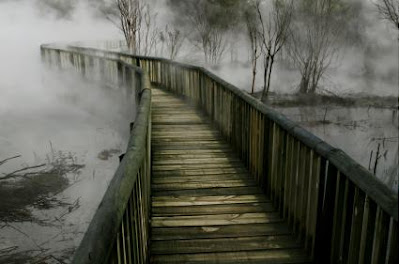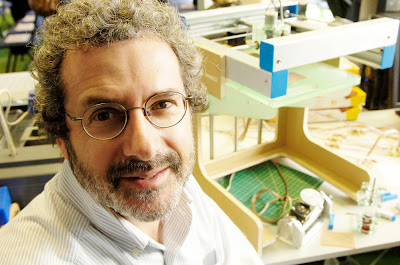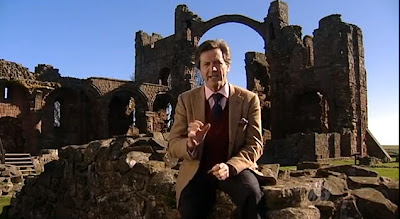Saturday, December 21, 2013
(Higher level-Advanced) The Secret Life of the Orchestra
Karl Steven is a local genius who went to the same school as I did. In this extremely informative and enjoyable four-part series Karl explores the four families of orchestral instruments: brass, percussion, woodwind, and strings. Along the way we find out about how they work, their unusual past, and meet some of the players who devote their lives to them.
Listen:
The Secret Life Of
Friday, December 13, 2013
Tuesday, December 10, 2013
(Higher level-Advanced) The World's Fastest Talking Woman
Fran Capo is the fastest talking woman in the world. She can speak at 11 words per second.
Watch:
The World's Fastest Talking Woman
Guiding questions:
What is a lexicon compressor? What does it
do that a tape recorder can’t?
What makes a record attempt “null and
void”?
What are Fran’s different jobs?
How does she look at life?
Where is Fran from?
What did she do on the bottom of the ocean?
Why is she in NZ?
Listen again and complete the gaps:
The _________ season
A __________ business
Do a d_______________
Once upon a time _____ ______ _______
________ pigs. One ____ ____ ______ _____ ______. The _____ little pig ______ _______ _______. _____
_______ ________ pig liked to _____ ______ _______.
Enunciated p___________
Up to ____
Go _________ life
The _________ of the titanic
An ordained ________
___________ talking proof
Saturday, December 7, 2013
Maungakiekie
Maungakiekie was the largest and most important Māori pā in pre-European times. The cone and its surroundings are estimated to have been home to a population of up to 5,000. At this time, the Nga Marama chief Kiwi Tamaki held the pa and used its strategic placement to exact tribute from travellers passing from Northland to the rest of the North Island through the rich isthmus. Its position between the Waitemata Harbour to the east (opening upon the Pacific Ocean) and the Manukau Harbour to the west (opening onto the Tasman Sea) offered a wide variety of seafood from the two harbours. The volcanic soil of the slopes of the mountain was highly fertile and easy to defend from raiding parties from other tribes due to its steep sides and imposing palisades. The inhabitants terraced the hill extensively, and it is considered to be the largest prehistoric earthwork fortification worldwide. It is also the largest and most complex volcanic cone/earth fortress known in the Southern Hemisphere.
Watch ethnologist David Simmons talk about the mountain's rich history:
(there's a mihi in Māori first, but the rest is in English)
Maungakiekie
Monday, December 2, 2013
Kuirau Park, Rotorua
The Kuirau Park Flea Market could quite possibly be the only market surrounded by bubbling mud and hot steam, and is one feature that makes Kuirau Park a Rotorua essential.
Read more:
Kuirau Park
Thursday, November 28, 2013
Advanced Speaking & Pronunciation
English is an unusually rhythmic language where the individual sounds of the language vary greatly in duration according to the meaning intended. This video series moves beyond the idea of individual sounds ("segmentals") and syllable stress ("suprasegmentals") to look at how we group these sounds together into longer speech units and sentences ("prosody"), where rhythm, stress, intonation, focus and thought groups come fully into play.
I can't promise you that this is an exciting video course, but I can promise that you will learn a lot.
Watch, listen and learn:
Advanced Speaking and Pronunciation
(Advanced) White Pride In My Classroom
Ben Warner lives in Silver Spring, Maryland. He teaches college writing. Here he writes about an encounter he had with a White Supremacist student. An interesting account of the paradoxes of teaching young adults.
Read more:
White Pride in my Classroom
Thursday, November 14, 2013
(Higher Level to Advanced) A surprising solution to Climate Change
"Desertification is a fancy word for land that is turning to desert," begins Allan Savory in this quietly powerful talk. And terrifyingly, it's happening to about two-thirds of the world's grasslands, accelerating climate change and causing traditional grazing societies to descend into social chaos. Savory has devoted his life to stopping it. He now believes -- and his work so far shows -- that a surprising factor can protect grasslands and even reclaim degraded land that was once desert.
Watch:
Allan Savory
Sunday, November 10, 2013
(Higher Level to Advanced) 19-year-old's Ocean Cleaner
19-year-young Boyan Slat has ingeniously created the Ocean Array Plan, a project that could remove 7,250,000 tons of plastic from the world’s oceans in just five years.
Read About it here:
Tuesday, September 24, 2013
(Mid Level-Advanced) The Happy Prince by Oscar Wilde
Listen:
The Happy Prince
Monday, September 16, 2013
Tuesday, September 10, 2013
(Any Level) Where's the Octopus?
When marine biologist Roger Hanlon captured the scene in this video he started screaming. Hanlon, senior scientist at the Marine Biological Laboratory in Woods Hole, studies camouflage in cephalopods - squid, cuttlefish and octopus. They are masters of optical illusion.
Where's the octopus?
Monday, August 26, 2013
Blending Times
 |
| Berlin 1945/2010 by Sergey Larenkov |
Sergey Larenkov is a Russian-based artist/photographer who was deeply impacted by World War II. On his Live Journal blog, the Saint Petersburg native has put together a tremendous set of collages of historic World War II photographs blended into the same locations as they currently look today.
Through collaboratiion with the the State Museum of History of St. Petersburg and the Russian State Documentary Film & Photo Archive, in Krasnogorsk; Sergey then travelled to various battle scenes from World War II, snapping a picture in present day for his blended collages. Sergey has travelled to Paris, Berlin, Prague and around Russia, revisiting historic war sites. By snapping these locations from a similar angle as the original war photographs, we get a chilling glimpse into a very different and scary time.
The photographs below are haunting, telling and incredibly fascinating. Be sure to check out the entire collection at:http://sergey-larenkov.livejournal.com/
See photos:
Sergey Larenkov
Thursday, July 25, 2013
Gather and Hunt

Often my students in Auckland are at a loss to grasp what the city has to offer in terms of shops, cafes and activities. Gather and Hunt has a commercial directory for what's basically worthwhile and classy in Auckland. I haven't found another directory as astute as this.
Gather and Hunt
Sunday, June 30, 2013
(Advanced) Warp Speed Ahead
A few months ago, physicist Harold White stunned the aeronautics world when he announced that he and his team at NASA had begun work on the development of a faster-than-light warp drive. His proposed design, an ingenious re-imagining of an Alcubierre Drive, may eventually result in an engine that can transport a spacecraft to the nearest star in a matter of weeks — and all without violating Einstein's law of relativity.
How NASA might build very first warp drive
Thursday, February 21, 2013
(Advanced) How Bacteria Talk
Bonnie Bassler discovered that bacteria "talk" to each other, using a chemical language that lets them coordinate defense and mount attacks. The find has stunning implications for medicine, industry - and our understanding of ourselves.
Video:
How bactaria talk
Tuesday, February 19, 2013
(Higher Level to Advanced) Sir Ken Robinson: Changing Education Paradigms
Renowned educationalist Sir Ken Robinson critiques the dominant model of education.
Video
RSA Animate - Changing Education Paradigms
Monday, February 11, 2013
(Advanced) Whither Music?
Leonard Bernstein (August 25, 1918 – October 14, 1990)
Leonard Bernstein was an American composer, conductor, author, music lecturer and pianist.
In the 1970s he did set of interdisciplinary lectures at Harvard University in which he borrowed terminology from contemporary linguistics to analyse and compare musical construction to language. The title of the lecture series "The Unanswered Question" was taken from a symphonic work by American composer Charles Ives.
Video:
The Unanswered Question
Saturday, February 9, 2013
(Advanced) The Precariat
precarious |priˈke(ə)rēəs|
adjective
1 not securely held or in position; dangerously likely to fall or collapse : a precarious ladder.
2 dependent on chance; uncertain : she made a precarious living by writing.
DERIVATIVES
precariously adverb
precariousness noun
ORIGIN mid 17th cent.: from Latin precarius ‘obtained by entreaty’ (from prex, prec- ‘prayer’ ) + -ous .
Kim Hill interviews Professor Guy Standing, author of The Precariat: The New Dangerous Class. Standing describes the new make up of global society as it has emerged in the last 30-40 years. One of the consequences of what is often called "neo-liberal" policy (the policy of corporatisation) is what he calls the emerging Precariat class which consists of many different social groups who have in common the experience of being unable to find a secure foothold in society.
Radio:
The Precariat
Friday, February 8, 2013
(Mid Level) Copycat
Finding himself at a loose end, Casino Roy did a Facebook search for people with the same name as him. He then replicated their profile pictures, turned the results into his own profile snap then sent each namesake a friend request.
Read text:
Copycat
Thursday, January 31, 2013
(Mid Level) Letter Writing
This is very general advice. I'll keep looking for something with a bit more detail.
Video:
Letter Writing
Now here's an example of a semi-formal email. It's crisp and friendly. He's quite a big shot and it's partly a letter of refusal (well it's more open-ended than that) so he has to weigh his words carefully. He knows he's dealing with a sensitive artist! How important is the word "unfortunately" in this letter? What about the word "any" in the same sentence - what purpose does it serve? Do you think he succeeds in not sounding like a jerk? What's his secret?

Wednesday, January 30, 2013
(Mid Level) A Letter of explanation
What is the apparent purpose of the letter? What is its real purpose?
Is it formal, informal or does it mix registers?
Look for formal or upper register language - how would this be said in plainer English? What are the purposes of adopting this register?
Which features could be described as narrative? How are fantasy and reality fused? How is characterisation achieved?
What techniques of tact are employed?
What subtleties might an adult reader discern that Emily may not?
How is Emily likely to respond to this letter?
Wednesday, January 23, 2013
Adrian Underhill on pronunciation
This is such a great English lesson! Even for a native speaker. After this you will understand the language in a whole new way.
Video:
Adrian Underhill - pronunciation workshop
Also try this:
Adrian Underhill's interactive phonemic chart
Thursday, January 17, 2013
(Advanced) Modernist Utopias
Metropolis, 1927
Melvyn Bragg and guests discuss the mad, bad world of modern utopias.
Radio:
Modernist Utopias
Monday, January 14, 2013
(Advanced) Muslim Spain
The Great Mosque of Córdoba
Melvyn Bragg and guests discuss Muslim Spain. Despite periods of infighting and persecution, Muslim Spain was a land where Muslims, Jews and Christians co-existed in relative peace and harmony for over 700 years. But what some historians refer to as Cordoba’s Golden Age came to an end in the 11th century, when the society was destabilised by new threats from Africa to the South and Christendom to the North.
Radio:
Muslim Spain
NB: If you have problems linking to the audio file on the In Our Time website, go here and find the title Muslim Spain:
In Our Time - Religion
Wednesday, January 9, 2013
(Advanced) In the Footsteps of Bruce Chatwin
One of the greatest travel writers of the Twentieth century.
Video:
In the Footsteps of Bruce Chatwin
Friday, January 4, 2013
(Advanced) Cypherpunks
In the age of cyber surveillance where does the boundary between private and public fall - if it still exists at all?
Andy Muller Maguhn, Jeremie Zimmerman, and Jacob Appelbaum are all prominent web activists advocating the free circulation of data and knowledge on the web. They are all key figures in the Cypherpunks movement - a movement dedicated to keeping your private data private. In this eye-opening encounter, Julian Assange discusses with them the technical challenge posed by government snooping on personal data, the democratisation of essential encryption technology, and the importance of web activism.
Video:
Cypherpunks
From The World Tomorrow, Julian Assange
Thursday, January 3, 2013
(Advanced) Death as we know it
Anne Pringle collecting data
about the lichens on the gravestones at a cemetery in Petersham, Mass.
"Death as we know it rests on an animal-centered idea of individuality." Dr Anne Pringle, who is studying the possible immortality of lichen that grow on gravestones.
Reading:
A Seemingly Immortal Species
By Hillary Rosner
(Advanced) Digital Fabrication
Neil Gershenfeld
Video:
Neil Gershenfeld's Ted Talk on Fab Labs
Radio:
Kim Hill talks with professor Gershenfeld on fablabs and digital fabrication.
Neil Gershenfeld: digital fabrication
Wednesday, January 2, 2013
(Higher to Advanced) The Adventure of English - Birth of a Language - Ep 1
Melvyn Bragg explores the roots of the English language which evolved from a German dialect that arrived in Britain in the fifth century.
Video
The Adventure of English ep 1
Subscribe to:
Comments (Atom)



























